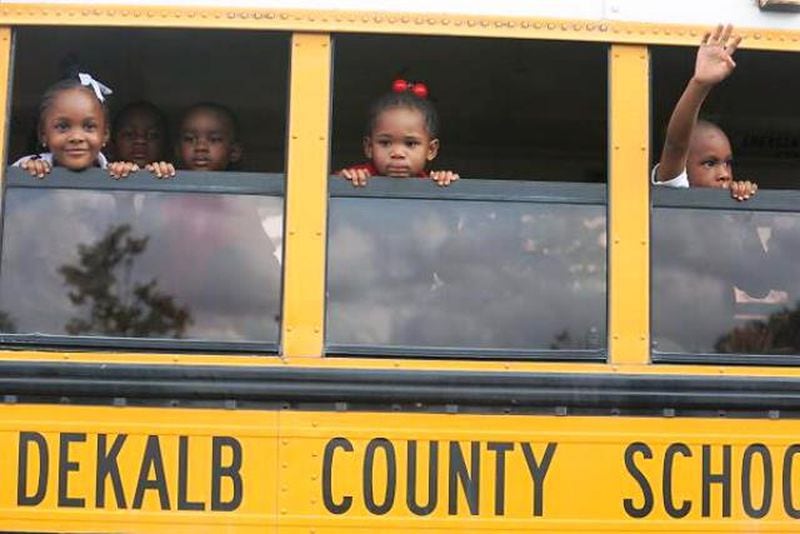Arne Duncan is the U.S. Secretary of Education. Roy Bostock, a Republican, is vice-chairman of the board of Delta Air Lines, a former Chair of Yahoo! Inc., a retired director of Morgan Stanley and is a member of business group ReadyNation.
By Arne Duncan and Roy Bostock
America’s greatest strength has always been its people, and our enduring belief that our country is—and must continue to be—a place where all of us can go as far as our talents and determination may take us. Today, more than ever, success isn’t just about what you know, but what you can do with what you know—skills like creativity, critical thinking, and working well with others.
These skills are built beginning in the earliest years of life. That’s why—if our country is to remain a global leader in today’s knowledge-based economy—high-quality early education must be accessible to every family who seeks it for their child. When policymakers debated a replacement to the Elementary and Secondary Education Act (ESEA)—better known as No Child Left Behind—this week, Senators Patty Murray, Johnny Isakson, Bob Casey, and Mark Kirk created and helped to pass an amendment to the bill that aims to improve and expand high-quality early learning programs. We applaud them for this bipartisan effort and believe that an investment in preschool must remain a strong part of the final bill.
Before she ever studies a software manual, the 3-year-old future programmer must build a foundation for learning how to read. The future neurosurgeon must begin to think critically and understand how to solve problems. And the future educator must develop a passion for learning and the socio-emotional skills to work with people.
Credit: Maureen Downey
Credit: Maureen Downey
The moral argument for quality early learning also is compelling. Children from disadvantaged families should be given the chance to enter kindergarten at the same educational starting line as do children from more affluent families.
Yet, we know that children from low-income backgrounds enter school, on average, 12 to 14 months behind their peers in language development and pre-reading skills. These children start school at a deficit—and, too often, they never catch up. That’s not a formula for cultivating the highly skilled, dynamic workforce America needs in a world where the competition for good jobs waits for no one.
To prepare children for their future, public education can no longer mean just kindergarten through senior year of high school. It must reflect the real, scientific understanding that learning begins long before age five.
Our nation is at a critical moment. Congress is working to renew ESEA, which provides federal dollars and sets guidelines to help ensure that factors like poverty, race, disability, language needs, and zip code don’t limit the education a child receives.
We all should care about the new education law being decided for our country. A good bill must increase the likelihood that every child in America starts kindergarten ready for success. A good bill must help to expand access to high-quality early learning and address preschool waiting lists across the country.
Of the approximately 4 million 4-year olds in the United States, about 60 percent—or nearly 2.5 million—are not enrolled in federally or state-funded preschool—the vast majority of public preschool.
And while most children who have access to preschool attend moderate-quality programs, African-American children and children from low-income families are the least likely to attend high-quality programs.
In a world that demands deeper knowledge and sophisticated skills, all children must have the opportunity to build a strong foundation for learning, so that they stay strong through college and careers. Businesses today already have experienced the effects of weaknesses in our human capital pipeline. Approximately 40 percent of U.S. employers have reported difficulty filling jobs due to a lack of available talent.
Businesses, governors, mayors, Republicans and Democrats, and communities throughout the country have shown their support for early learning. They understand that we can begin addressing these weaknesses and strengthen our nation when all children begin kindergarten prepared to succeed.
Research on disadvantaged children confirms that high-quality preschool yields great benefits both to individuals and society, through increased high school graduation and employment rates, lower rates of crime, better health and greater lifetime earnings, creating increased tax revenue. And while the range of savings varies across studies, investments in early education can also produce robust returns to taxpayers—approximately $8 for every dollar invested.
Significant new investments in high-quality preschool are necessary to help states, local communities, and parents ensure that children are set up for academic and career success long before kindergarten. This isn’t strictly an education issue. It’s not just an economic issue. And it shouldn’t be a partisan issue. It’s an American issue; because we all share a stake in our children’s success.







